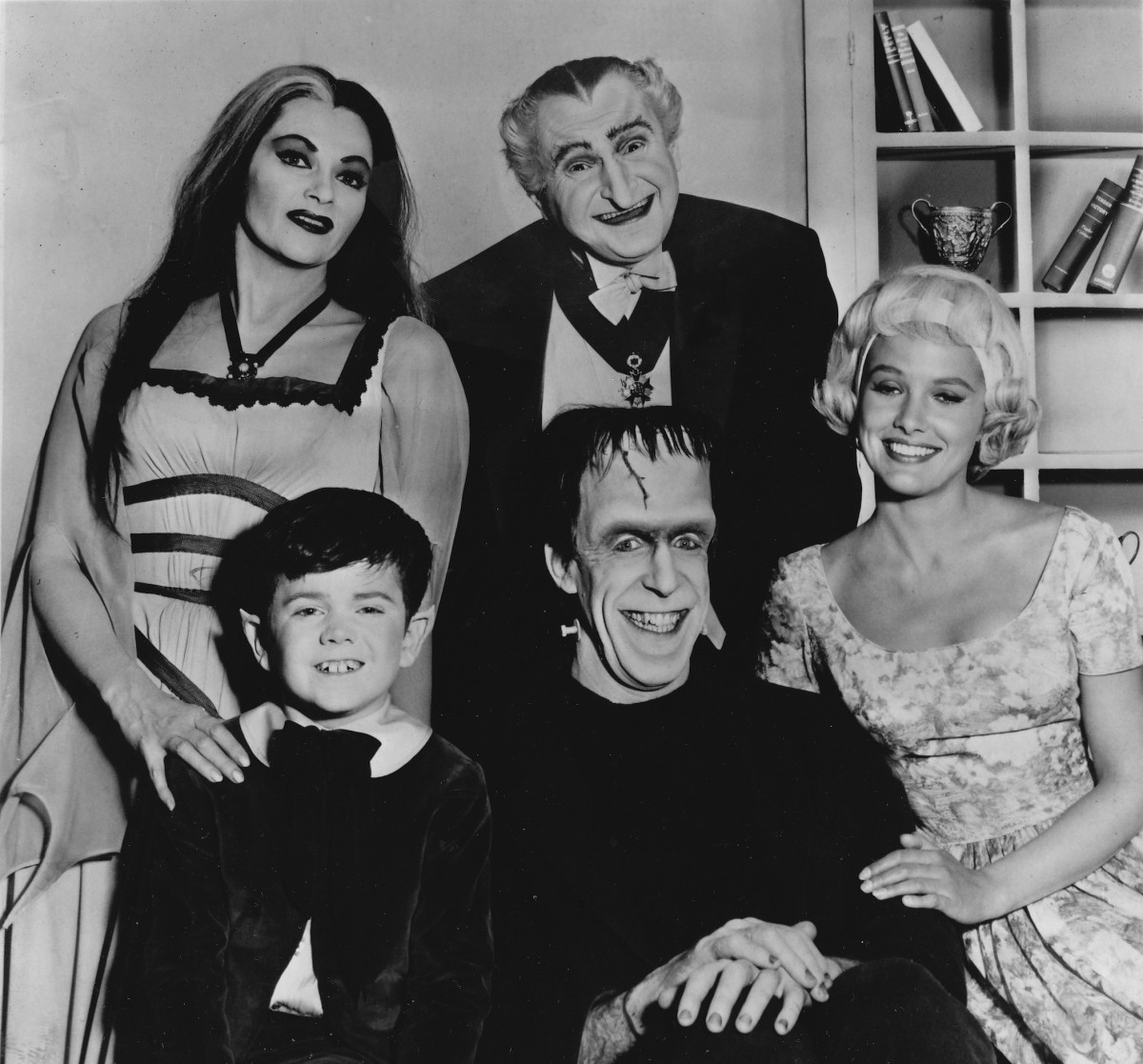How to Become a Filmmaker: Should you go to Film School?
When I was a young man I had one very simple dream and that dream was to be a big Hollywood filmmaker. It was a pretty crazy dream for a working class kid from Ohio but between the ages of 14 and 25 it was my complete obsession. After the age of 25 I gave it up. You may be thinking to yourself, “then what can you possibly tell me about being a filmmaker?” Well smart guy, I went to film school, I worked in movies, wrote screenplays and made just about every mistake somebody could possibly make while pursuing that goal. I also have friends who had their own experiences in the film business, some much more successful than mine. I don’t have any regrets. I went back to school to study philosophy and those years were some of the most enriching of my life but still I wish there was somebody to tell me the things then that I know now. Maybe I would have made it. Maybe I would have given up sooner. We’ll never really know but here is the wisdom I have to give to the younger generation.

Pros and Cons of Film School
There are many reasons that film school can be a good thing for somebody who wants to direct their own movies or to work in the movie business. Film school can be a great way to learn the craft in an environment where you have some guidance and peers who are as interested in movies as you are. It also means if you mess something up royally it isn’t going to cost you thousands of dollars and an ulcer but will only hurt your college GPA. You basically have a chance to make movies in a relatively free environment before the training wheels come off.
One reason to go to film school that people use is to learn about films and film history. This information exists in books. You will get the chance to watch a large amount of films in classes but this isn’t a deal. When you think about how much money you spend on tuition it isn’t exactly economical to go to film school just to watch movies. The film school I went to had a huge library of films that only students in the film program had access to but I had already made huge strides in increasing my knowledge of film history by using my public library card. You would be surprised how many classic, obscure and foreign films you can find at your local library. So basically if you aren’t already working to be a walking encyclopedia of film knowledge like Martin Scorcese or Quentin Tarantino by the time you even consider film school then I question your dedication.
That brings me to my most important point about film school. How bad do you want it? I attended film school at a state institution which allowed open enrollment in the film program for the first year. First year students were required to take a class in “film appreciation” their first quarter, “film history I” their second quarter and “film history II” and “beginning film production” their third quarter. After that there was an audition with all the professors where it was decided whether a student could go on to the second year of the film program. The program allowed the maximum number of 25 members and the professors looked at your short film and your grades and decided if they were going to let you in.
My first quarter film appreciation included 102 students in a huge lecture hall. Of those 102 students who were considering being film majors 36 made it to the second quarter. That’s right, out of 102 students who wanted to be filmmakers only 36 decided to continue after one class. A lot of people think that being a film major is the path of least resistance and are shocked to learn it actually involves hard work and dedication. This is just for getting through film school. If you want to actually MAKE MOVIES think about how hard it is. Of the 36 who made it to the second quarter 19 made it to the second year. Of those 19, only 12 got their Bachelors of Fine Arts degrees and of those 12 only 3 currently work in the film industry 9 years later. Few people are going to tell you that cold hard truth.
Another point I’d like to make about film school is cost. If your parents are willing to pay for it and don’t mind that you are majoring in something that is a straight shot to years of poverty before you can even begin to make a go of it, then by all means go to film school. If you get some kind of scholarship by all means go to film school. But if you are not able to pay for college very easily then I’d think about how much debt you are willing to put yourself into. I was only in about nine thousand dollars debt. I went to a cheap school, got grants and scholarships and worked all the way through school. Still, even that small amount of debt was a burden when I spent the next three years after college looking for work. If I had fifty to eighty thousand dollars’ worth of college debt like you are likely to have after attending a big film school I’d say your chances of becoming a filmmaker have been reduced considerably by going to film school.
Being a Filmmaker is Like Being a Cult Leader (or sometimes member)
There are a number of questions you need to ask yourself to gage how successful you will be at trying to become a filmmaker. Am I willing to work for no money to get a movie made? Am I willing to get arrested for filming without a permit? Am I willing to live in my car? Am I willing to harass somebody or campaign relentlessly in order to get a job where I won’t get paid anything? Am I willing to be mostly dateless because I can’t afford to take anybody out? Am I willing to sell everything I own or do things that most people think are crazy in order to finance my film? If the answer to all these questions is “no” then you should probably give up right now. I was willing to do all of these things at some point or another. The one thing that I should have done but didn’t was move to California and this probably cost me more than anything in trying to make movies.
While many of my friends took off to go to Los Angeles or New York after film school I stayed right in Ohio and tried to become involved in film’s produced in the state. I did work on a few films during this period but that was only because there wasn’t as much competition in Ohio, so even though there were few films produced independently in state there were also only a few people with experience who are willing to work for little or no money.
I cannot stress how much moving to Los Angeles or New York will help your chances of making films. That is where the industry is. I know a few people who go back and forth between Ohio and LA but you have to go there at some point. I know nobody from my area that ended up working in the film industry who did not go to California or New York. Of the three people who stayed in my graduating class, including myself, one works for the Cleveland film commission (he was also the most talented in our class in my opinion), the other is a manager at an art house movie theater and I went back to school to study philosophy and started writing fiction. If you already live close to New York or Los Angeles you have a definite advantage over everybody else and if you live elsewhere in the country you better get there.
Even if you are willing to do all these things yourself there is a definite hurdle to still overcome. That is you have to be able to convince other people to do them as well. If you are making a movie you can’t do everything yourself. You have to be able to get people to believe that what you are doing is worth sacrificing money, time and sleep over. If you don’t have the charisma to convince people to join your little cult then you have to at least be able to make friends with somebody who can. Film is not an art form for people with bad people skills. Sure, there are some jerks who manage to get lucky but their star doesn’t soar very high until they finally crash and burn.
The best example I can think of this is Troy Duffy. You may know Troy Duffy as the writer and director of the inexplicably popular Tarantino knock off Boondock Saints. Duffy was a bartender who wrote a screenplay that got him a deal that most wannabe filmmakers can only dream of. Then he did absolutely everything wrong after that. Convinced that he was a genius, Duffy treated everybody he came in contact with as if they should be grateful to be able to bask within his talent. He insulted big actors who were interested in being in his film. He insulted the studio executives who gave him the deal in the first place. He even insulted all his friends who had helped him get where he was, even his two friends who were shooting a documentary about him at the time.
The resulting documentary, Overnight, is a cautionary tale for any young aspiring filmmakers out there. Duffy gets to make his film but for a much lower budget then he was originally offered and with no marketing it becomes a failure. Some will point out that Duffy’s film did gain a cult following on DVD (I personally think it is an awful film but to each his own.) but even then it took almost a decade for Duffy to be allowed to make Boondock Saints II, which promptly failed at the box office again and perhaps put an end to his career for good. Watch Overnight and you will actually start rooting for Duffy to fail. This is an important lesson. Networking is every bit as important, if not more important, than talent.
An example of what TO DO is Stuart Acher. He made a student film and then went to film festivals and anywhere else he could to aggressively promote it. The short film, Bobby Loves Mangos, was not something that was an easy sell but Acher tried to push it on everybody who could find and finally after receiving a refusal at first got film critic Roger Ebert to watch it. (see video) Ebert was so impressed with the short film that he wrote an article about it and mentioned the short on his show. Acher was able to turn this tiny bit of exposure into gigs directing films, television and music videos.
Don’t be stupid about money
Everybody knows the story of Kevin Smith. To finance his film Clerks, Smith got approved for as many credit cards as he could and then maxed them all out to pay for the making of his film. To many this is an inspiring story and many young filmmakers who hear it decided that they will follow his example. WHAT ARE YOU CRAZY? Probably at least dozens of films are made this way or some other way that is similar every year and you never hear anything else about them. That is because Smith’s success was a complete fluke. That is why his story is so famous. If it happened everyday then there would be no reason to really talk about it. I know people who have tried to make films this way and all they did was ruin their credit and derail their career for at least several years while they struggled with their huge debt.
If you want to get enough money to make a film yourself then you are going to have to raise it. Maybe you have a rich family member or stuff you can sell. Robert Rodriguez, who went on to make movies like Spy Kids and Sin City, got the money to make his first film El Mariachi by volunteering for medical experiments. This may seem a bit extreme but this goes back to how dedicated you are. If you really want to make a movie bad enough then you will get the money and if you can’t convince people to give you money to invest in the movie business then you probably weren’t going to go very far anyway. (Everybody wants to make movies. Just not everybody wants to work to do it)
The way that Sam Raimi got the money to make his first film, The Evil Dead, was he shot a short trailer for the film and then took it to investors. Most of the people he showed it to were just doctors and lawyers who had a little cash. If you can get 100 people to give you 1,000 dollars then suddenly you have a 100, 000 dollar budget, which is more than enough to make a low budget movie these days with video technology driving the price down. Raimi’s friends Joel and Ethan Coen followed the same model when they made their first film Blood Simple. These are very humble beginnings for the guy who directed Spider-Man and the guys who won an Oscar for directing No Country for Old Men.
In some ways you are lucky to be entering the movie business now. There are more options to help finance young filmmakers than ever before and also technology is bringing the price of making movies down lower than ever. You can make a high quality movie for peanuts if you can inspire enough people to join your cult and use a little ingenuity to make your film look as if it cost a lot more money than you actually had.
I would advise studying as many “no budget” movies as possible to learn techniques that may help you. All the movies mentioned above would be good choices to start. When I was in film school, one of my professors also showed us two early films by John Carpenter. If you watch Carpenter’s Darkstar you will be amazed at how he was able to create a science fiction film that looks this good for no money. The same is true of Carpenter’s Assault on Precinct 13. The film was made for almost no money but is as exciting as any big budget action movie. You can do it too if you want it bad enough. Just remember that it isn’t going to happen overnight. It will take a lot of dedication for you to realize your dream and reap the rewards.

![El Mariachi / Desperado (Double Feature) [Blu-ray]](https://m.media-amazon.com/images/I/512qOjI2WUS._SL160_.jpg)


